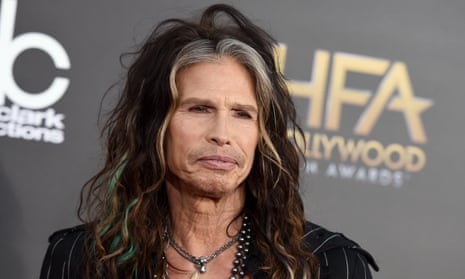Aerosmith frontman Steven Tyler is asking Republican presidential candidate Donald Trump to stop using the power ballad Dream On at campaign events.
Attorneys for Tyler sent a second cease-and-desist letter to Trump’s campaign committee on Saturday.
The letter says that Trump does “not have our client’s permission to use Dream On” or any of Tyler’s other songs and that it “gives the false impression that he is connected with or endorses Mr Trump’s presidential bid”.
Tyler is not the first musician to complain about a politician using his song. Most famously, Bruce Springsteen objected to Ronald Reagan’s use of Born in the USA in 1984.
Earlier in the 2016 campaign, REM frontman Michael Stipe protested the use of the band’s 1984 song It’s the End of the World as We Know It (And I Feel Fine) by Trump and the Texas senator Ted Cruz, another 2016 candidate.
In June, Neil Young protested Trump’s use of his Rockin’ in the Free World at his campaign launch.
Such issues have also spilled to the margins of the campaign. Last month the Kentucky clerk Kim Davis, who served jail time over her refusal to issue same-sex marriage licenses and thereby became a darling of the far right, was rebuked by Survivor over the use of Eye of the Tiger at a rally featuring the presidential candidate Mike Huckabee.
“NO! We did not grant Kim Davis any rights to use ‘My Tune -The Eye Of The Tiger,’” the 1980s band wrote on their verified Facebook page.
Tyler, a registered Republican, attended the GOP contenders’ first debate in August. Attorney Dina LaPolt said in a statement that the letter was not a “political” or “personal issue with Mr Trump”, but was concerned with permission and copyright.
Representatives for Trump did not immediately respond to request for comment.

Comments (…)
Sign in or create your Guardian account to join the discussion